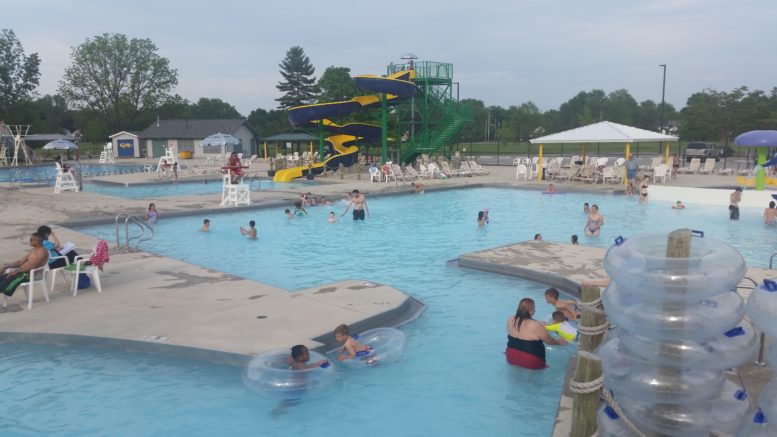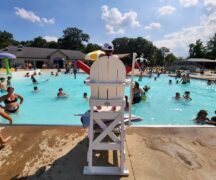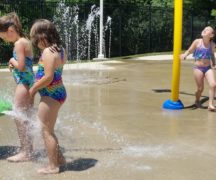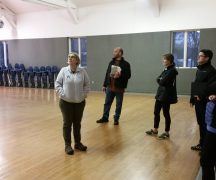By JAN LARSON McLAUGHLIN
BG Independent News
The Bowling Green Parks and Recreation Board took actions Tuesday to raise the daily rates for non-residents using the City Pool, and to decrease the chances of floating fecal matter in the pool.
The board voted to require all children who aren’t potty trained to wear reusable swim pants instead of disposable swim diapers. The reusable swim pants will be provided to families at no charge.
Disposable swim diapers have been required in the past, but they tend to fill up with water as soon as children enter the pool – leaving no room for leaks from young swimmers.
“Poop escapes the diapers – up the back,” said fitness and aquatic manager Josh Chatfield.
The Bowling Green Community Foundation has provided a $2,440 grant to purchase about 1,000 of the swim pants. The cost of the poop-trapping pants is far less than the cost of treating feces that reaches the pool water.
Treating escaped excrement varies per incident, and can take as long as 24 hours to complete. The costs for the chemicals, staff time for clean up, and lost revenue due to closure range from $750 to $3,625 per fecal incident.
The Bowling Green pool experiences an average of six stools in the pool each summer. In addition to being costly to resolve, feces in the water is a public health issue. Waterborne illnesses, such as Giardia and Cryptosporidium, can spread quickly if the waste goes unnoticed or unreported.
Then there is the undesirable image associated with swimming in water contaminated by fecal matter.
The reusable swim pants will be available on-site along with public health information about illnesses that can result from contamination of the water.
The parks and recreation department does not want to turn families away if they are unaware of the new rule or unable to afford reusable swim pants. The swim pants can be taken home by families, and reused when they return to the pool.
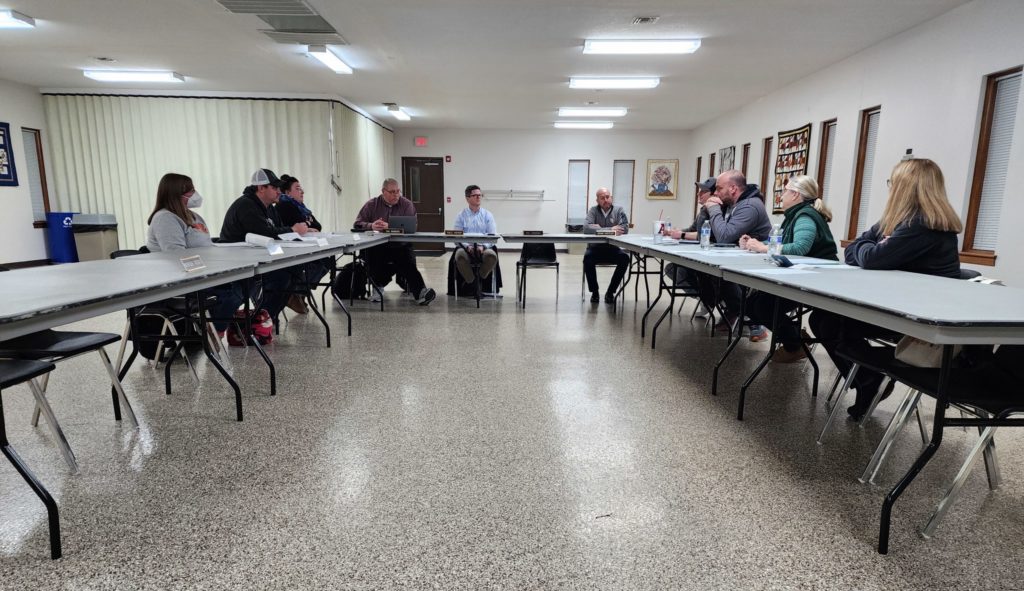
The board also voted to increase the daily swim pass by 50 cents for non-residents of Bowling Green. The proposed rate hike will next go to City Council for approval.
In November, Parks and Recreation Director Kristin Otley informed the board that while swimmers swarmed the pool last summer, revenues took a plunge due to increased costs to operate the site.
Any revenue growth from the jump in attendance was gobbled up by increased expenses for staff, chemicals, concessions and natural gas.
So when it was all tallied at the close of the season, the pool budget ended up $29,230 in the red – with $326,085 in revenue and $355,315 in expenses. The city had already dedicated $20,000 in American Rescue Plan funding to the pool, so that brought the expenses to $9,230 over budget.
Otley suggested that the daily fee for non-residents be increased 50 cents. That would bring in an estimated $6,000 more this summer. She recommended that rates for city residents remain unchanged, since residents already pay toward the pool through taxes.
The last rate increase at the pool occurred in 2019 – again just for non-residents.
“Non-residents are absolutely welcome to come, but they should pay more,” Otley said.
The numbers presented for the pool in November weren’t all negative. On the bright side, the daily pool admissions were high – bringing in $136,235, nearly $20,000 more than the previous year. Season passes, however, took a dip – totaling $95,068, nearly $12,000 less than the previous year.
Concession sales were high – coming in at $69,539, about $6,000 more than in 2021.
And swimming lessons were solid, with revenue of $25,243, about $900 less than the previous year, despite the decision to drop the maximum class size from 18 to 12 to provide for better instruction and more individual attention for students.
Overall, the revenues were up about 3.6%. However, the expenses for supplies, staffing and deliveries shot up about 7.7%, or $25,552 more than the previous year.
Those expenses included administration and maintenance staff up about $2,000, aquatic staff up around $5,000, chemicals increased by $4,000, concession supplies by nearly $3,000, operating expenses by $9,000, and natural gas by more than $3,000.
The board also voted to close the pool at the end of the summer when Bowling Green City Schools goes back into session. Finding available staff is difficult once older students are back at school, and the numbers of swimmers normally drops off as well. So closing mid-August makes sense financially, Otley said.
The splash pad adjoining the pool may be open for free on the weekends leading up to Labor Day, Otley added.

